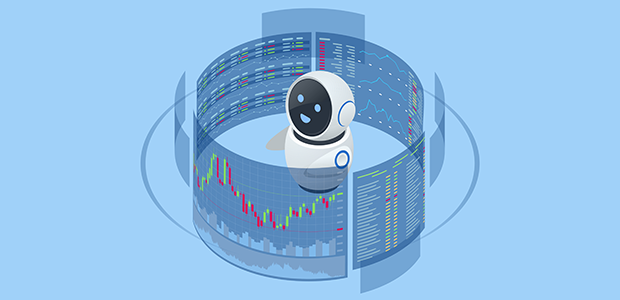
Democratisation of algorithmic trading: a new era for investors and startups
What if the secret weapon of Wall Street was suddenly in your hands? Every big bank and hedge fund guarded algorithmic trading, fast and powered by mountains of data, for decades. If you weren’t on the inside, you didn’t stand a chance.
Now, the gates are down. Cloud platforms, open-source code, and AI have cracked open what was once a fortress. Tricky trading strategies are no longer the private toys of the financial elite; they’re available to a sharp 27-year-old in a shared workspace or a solo trader running scripts from a kitchen table.
The playing field? Flatter than it’s ever been. This is a tectonic shift in market power. The democratisation of algorithmic trading is rewriting the rules of who gets to profit in the world’s financial arenas. The question is: will you seize the code, or watch others run the numbers?
From Wall Street secret weapon to mainstream tool
Algorithmic trading was born to fix the slow, clunky process of manual trading of big banks and hedge funds.
But over the past decade, AI and cheaper access to market data have hugely reduced the cost of entry. Today, platforms like MetaTrader, QuantConnect, and Alpaca give traders powerful tools – APIs, strategy testing, and live execution – that used to be reserved for the financial elite. Learning how to use them is easier, too. Online courses, active communities, and free code libraries let anyone with curiosity and persistence design and run their own trading algorithms.
The bigger picture: fintech for everyone
Today, a skilled developer with a reasonable budget can use technology that competes with what mid-sized investment firms have. Startups can plug in advanced trading, risk management, and analytics features without spending years or millions building them from scratch.
The result is an open financial world where the next big breakthrough could come from a major bank or a simple programmer at a Starbucks table.
Opportunities for startups and investors
Democratised algorithmic trading offers much more. Small investors can tap into emerging market equities, sustainable investments, or some cryptocurrency opportunities. Algorithms can also support robo-advisors whether managing smaller companies or advising novice traders.
For individual investors, the biggest success factor is discipline. Yes, the tech is easier to get – but the risks are still very real. Solid backtesting, a good understanding of how markets work, and strict risk controls are non-negotiable. It’s wise to try strategies in a simulated (paper-trading) environment before risking real money.
Make the most of this shift
- Learn the basics: programming, statistics, and finance are your toolkit. The real advantage comes from knowing all three
- Use the cloud: skip expensive setups; use scalable, affordable cloud solutions
- Start small: begin with a small amount of capital, track performance, and improve based on data
- Manage risk first: automation can make money fast – and lose it just as fast. Set stop-losses, limits, and real-time monitoring from day one
What’s coming next
As more people get access to these tools, expect the landscape to keep changing:
- Machine learning will move from assisting to driving strategy creation and execution
- Algorithmic trading in real estate, commodities, and other tokenised alternative assets will open up new opportunities
- In DeFi, algorithms could trade directly on the blockchain, rendering traditional brokers completely obsolete. They’ll also get better at adjusting instantly to each investor’s goals, risk comfort, and personal values
The line between institutional power and individual capability is getting thinner. That means the next big trading innovation could come from a skyscraper boardroom – or from someone’s living room. The tools are here; it’s just a matter of who decides to use them.
For more startup news, check out the other articles on the website, and subscribe to the magazine for free. Listen to The Cereal Entrepreneur podcast for more interviews with entrepreneurs and big-hitters in the startup ecosystem.

